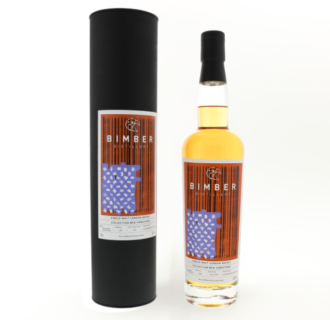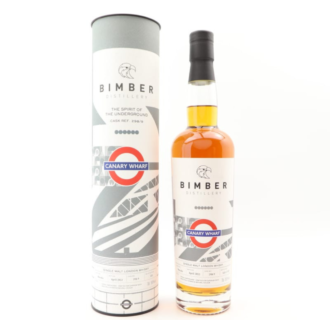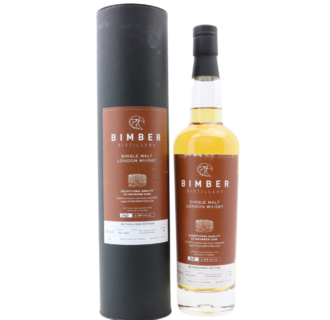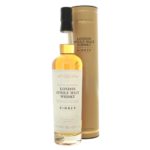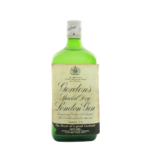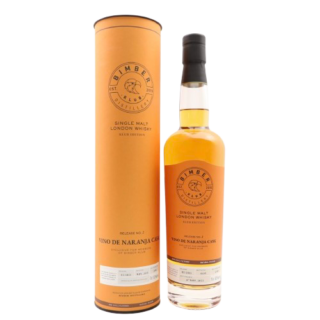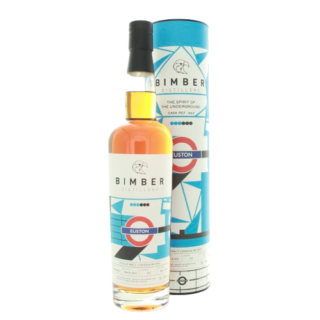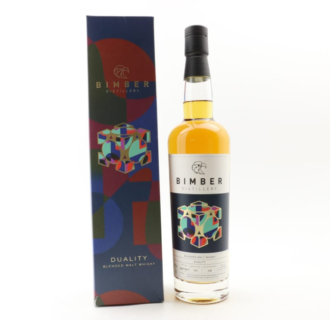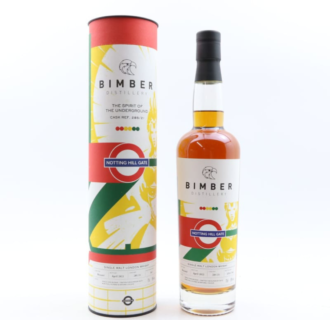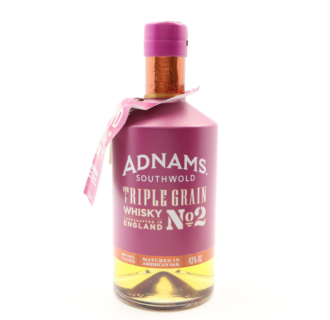Gordon’s Special Dry London Gin 1950s
75.7cl / 70 Proof%
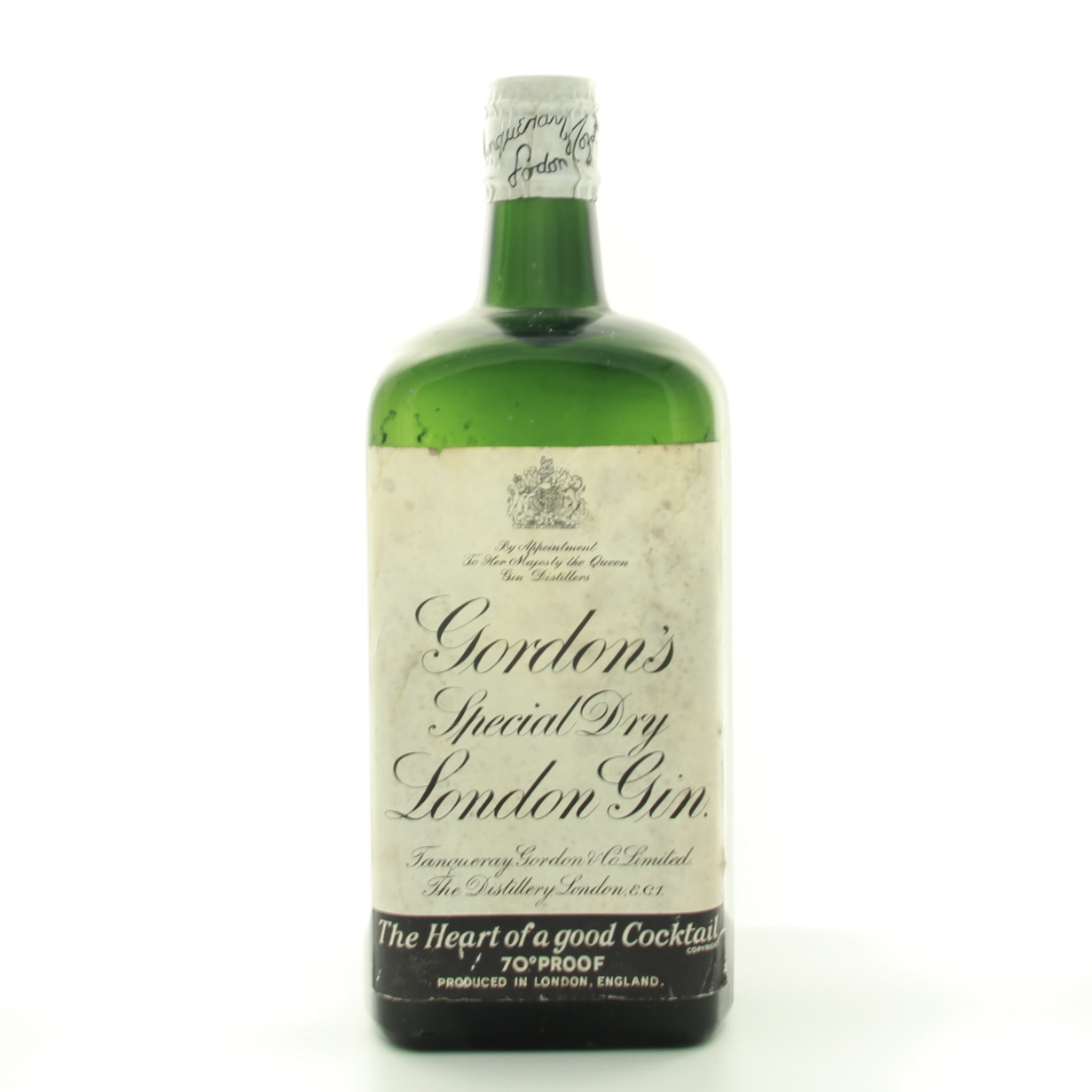
£149.00
About this whisky
- Region: London
Here is a story Anton Chekhov could write about this bottle:
The small, dimly lit room smelled faintly of varnish and old paper. A single, square window let in the pale light of the setting sun, casting long shadows across the desk where Fyodor Ivanovich sat. The cluttered surface held a few letters, a dried-up fountain pen, and, most prominently, a green glass bottle—a vintage 1950s Gordon’s Special Dry London Gin.
Fyodor turned the bottle in his hands, watching the light refract through the thick glass. Its juniper-forward scent seemed to rise, unbidden, from within, though the cork had not been removed. For years it had sat in the corner of his uncle’s cabinet, untouched, a relic from a time Fyodor could only imagine—a time of grandeur, of cocktail parties where men in dinner jackets laughed too loudly and women in silk gowns sipped drinks with sly smiles. Fyodor wondered if his uncle had ever been one of those men.
The bottle had come into Fyodor’s possession unexpectedly, much like his uncle’s apartment. His uncle, a stoic man who had rarely spoken of his past, had passed away three months prior, leaving behind this room filled with dusty books, stiff furniture, and the faint, lingering presence of a life lived in quiet solitude. The gin had been his uncle’s sole indulgence, or so Fyodor assumed.
That evening, after returning from the post office, Fyodor poured himself a small measure of the gin. The liquid was clear, bright, with an aroma that spoke of juniper, citrus, and something indefinable—something old and melancholic. He thought of the letters he had found in the apartment’s drawers, each neatly tied with twine, but unopened by him. They had seemed too private, too heavy with the kind of history Fyodor did not want to confront.
As the gin burned faintly at the back of his throat, Fyodor noticed the weight of the room around him. The bookshelves seemed to lean in; the air felt charged, though still. It was as if the gin itself demanded something of him—not to drink passively, but to reflect, to listen.
The next night, Fyodor invited Mikhail, an old school friend, to share a drink. They sat in silence for the first few minutes, the gin warming them, the room feeling smaller than before.
“Did your uncle ever tell you about this?” Mikhail asked, holding up his glass. His voice carried the casual curiosity of someone uninvested in the answer.
Fyodor shook his head. “No. He never spoke of much.”
Mikhail grinned faintly, running his finger along the rim of the glass. “Strange, isn’t it? This bottle… It feels like it belongs to another world entirely.”
Fyodor nodded but said nothing. In his heart, he felt the stirrings of something he could not yet name—a longing, perhaps, to uncover what his uncle had left behind, or a reluctance to disturb it.
The letters were opened on the third night. Fyodor could no longer resist the silent pull of the room, of the bottle, of the gin that tasted like a vanished age. They spoke of a woman, Elena, whose name appeared again and again in his uncle’s careful, slanting script.
She had been beautiful, vivacious, and, it seemed, lost to him. One letter described a summer evening in 1957 when they had shared a picnic by the Volga, sipping gin mixed hastily with lemons and soda. Another spoke of her departure to England, where she had married someone else, leaving Fyodor’s uncle with nothing but this bottle as a reminder of her and the nights they had shared.
By the time the gin was gone, Fyodor felt he knew his uncle better than he had ever known him in life. The man’s quiet stoicism now seemed not a defect but a shield against the ache of memory.
The green bottle, now empty, still sat on the desk, catching the light. Fyodor had thought to throw it away but found that he couldn’t. It seemed to him that the bottle was no longer just glass and liquid but a container for something more enduring—a story, a fragment of time that had somehow passed into his hands.
The next day, Fyodor set the bottle back in the cabinet. He closed the door gently and left the room, leaving behind the faintest scent of juniper, citrus, and history.
*******************************************
And here is our humble description of the bottle:
This vintage bottle of Gordon's Special Dry London Gin from the 1950s offers a glimpse into the golden age of cocktail culture. Crafted using the time-honored recipe that has made Gordon's a household name since 1769, this gin embodies the classic juniper-forward profile that defines the London Dry style. The iconic green glass bottle, a hallmark of Gordon's tradition, houses approximately 75.7 cl of this premium spirit. At 70 proof (40% ABV), this gin strikes the perfect balance of strength and smoothness, ideal for classic cocktails like the Martini or Gin & Tonic. As a product of its era, this bottle not only represents a superior gin but also serves as a collector's item, capturing the essence of mid-20th century spirits production. Whether you're a gin enthusiast or a lover of vintage libations, this 1950s Gordon's Special Dry London Gin promises to be a prized addition to any collection.
The small, dimly lit room smelled faintly of varnish and old paper. A single, square window let in the pale light of the setting sun, casting long shadows across the desk where Fyodor Ivanovich sat. The cluttered surface held a few letters, a dried-up fountain pen, and, most prominently, a green glass bottle—a vintage 1950s Gordon’s Special Dry London Gin.
Fyodor turned the bottle in his hands, watching the light refract through the thick glass. Its juniper-forward scent seemed to rise, unbidden, from within, though the cork had not been removed. For years it had sat in the corner of his uncle’s cabinet, untouched, a relic from a time Fyodor could only imagine—a time of grandeur, of cocktail parties where men in dinner jackets laughed too loudly and women in silk gowns sipped drinks with sly smiles. Fyodor wondered if his uncle had ever been one of those men.
The bottle had come into Fyodor’s possession unexpectedly, much like his uncle’s apartment. His uncle, a stoic man who had rarely spoken of his past, had passed away three months prior, leaving behind this room filled with dusty books, stiff furniture, and the faint, lingering presence of a life lived in quiet solitude. The gin had been his uncle’s sole indulgence, or so Fyodor assumed.
That evening, after returning from the post office, Fyodor poured himself a small measure of the gin. The liquid was clear, bright, with an aroma that spoke of juniper, citrus, and something indefinable—something old and melancholic. He thought of the letters he had found in the apartment’s drawers, each neatly tied with twine, but unopened by him. They had seemed too private, too heavy with the kind of history Fyodor did not want to confront.
As the gin burned faintly at the back of his throat, Fyodor noticed the weight of the room around him. The bookshelves seemed to lean in; the air felt charged, though still. It was as if the gin itself demanded something of him—not to drink passively, but to reflect, to listen.
The next night, Fyodor invited Mikhail, an old school friend, to share a drink. They sat in silence for the first few minutes, the gin warming them, the room feeling smaller than before.
“Did your uncle ever tell you about this?” Mikhail asked, holding up his glass. His voice carried the casual curiosity of someone uninvested in the answer.
Fyodor shook his head. “No. He never spoke of much.”
Mikhail grinned faintly, running his finger along the rim of the glass. “Strange, isn’t it? This bottle… It feels like it belongs to another world entirely.”
Fyodor nodded but said nothing. In his heart, he felt the stirrings of something he could not yet name—a longing, perhaps, to uncover what his uncle had left behind, or a reluctance to disturb it.
The letters were opened on the third night. Fyodor could no longer resist the silent pull of the room, of the bottle, of the gin that tasted like a vanished age. They spoke of a woman, Elena, whose name appeared again and again in his uncle’s careful, slanting script.
She had been beautiful, vivacious, and, it seemed, lost to him. One letter described a summer evening in 1957 when they had shared a picnic by the Volga, sipping gin mixed hastily with lemons and soda. Another spoke of her departure to England, where she had married someone else, leaving Fyodor’s uncle with nothing but this bottle as a reminder of her and the nights they had shared.
By the time the gin was gone, Fyodor felt he knew his uncle better than he had ever known him in life. The man’s quiet stoicism now seemed not a defect but a shield against the ache of memory.
The green bottle, now empty, still sat on the desk, catching the light. Fyodor had thought to throw it away but found that he couldn’t. It seemed to him that the bottle was no longer just glass and liquid but a container for something more enduring—a story, a fragment of time that had somehow passed into his hands.
The next day, Fyodor set the bottle back in the cabinet. He closed the door gently and left the room, leaving behind the faintest scent of juniper, citrus, and history.
*******************************************
And here is our humble description of the bottle:
This vintage bottle of Gordon's Special Dry London Gin from the 1950s offers a glimpse into the golden age of cocktail culture. Crafted using the time-honored recipe that has made Gordon's a household name since 1769, this gin embodies the classic juniper-forward profile that defines the London Dry style. The iconic green glass bottle, a hallmark of Gordon's tradition, houses approximately 75.7 cl of this premium spirit. At 70 proof (40% ABV), this gin strikes the perfect balance of strength and smoothness, ideal for classic cocktails like the Martini or Gin & Tonic. As a product of its era, this bottle not only represents a superior gin but also serves as a collector's item, capturing the essence of mid-20th century spirits production. Whether you're a gin enthusiast or a lover of vintage libations, this 1950s Gordon's Special Dry London Gin promises to be a prized addition to any collection.
